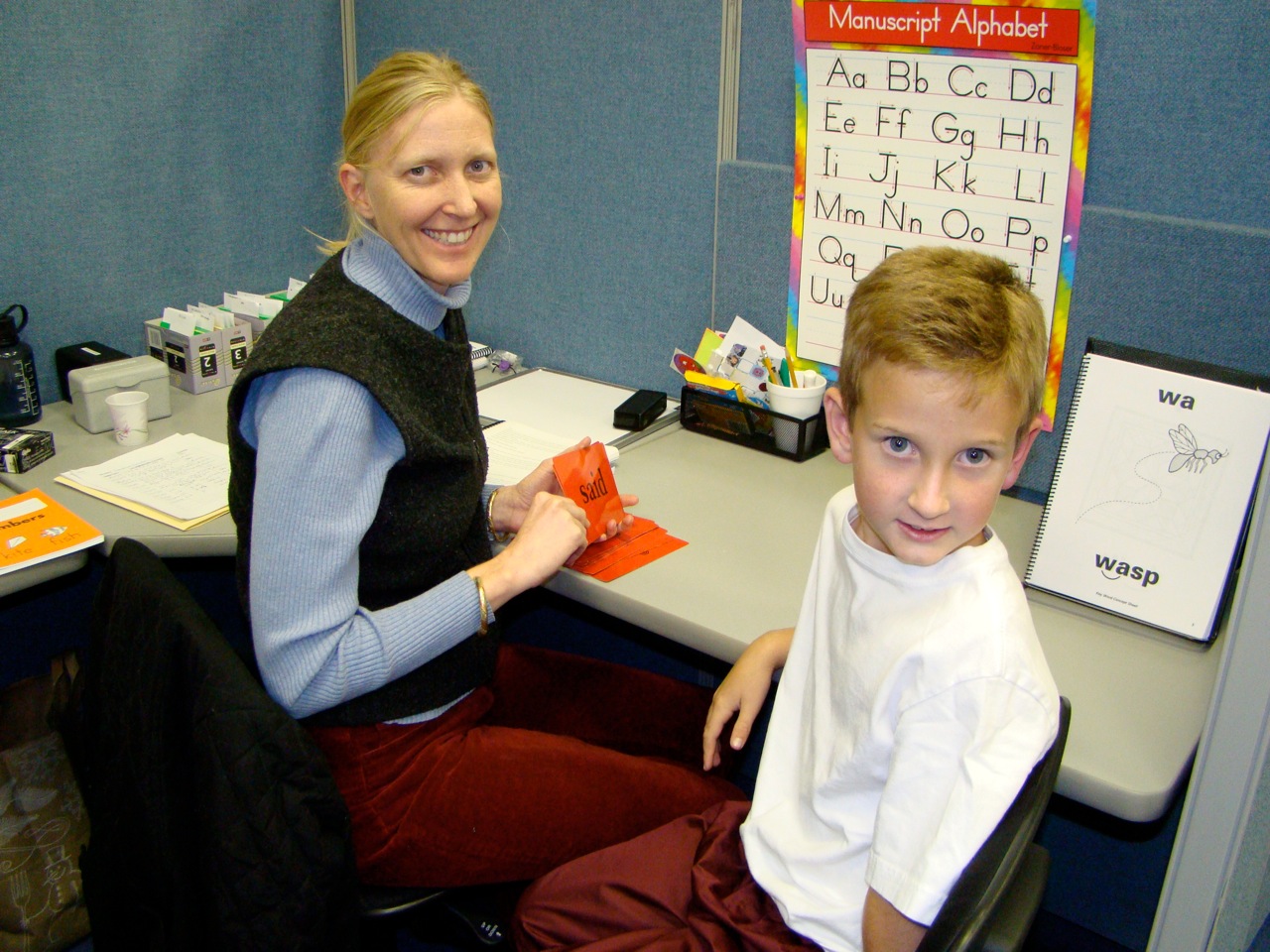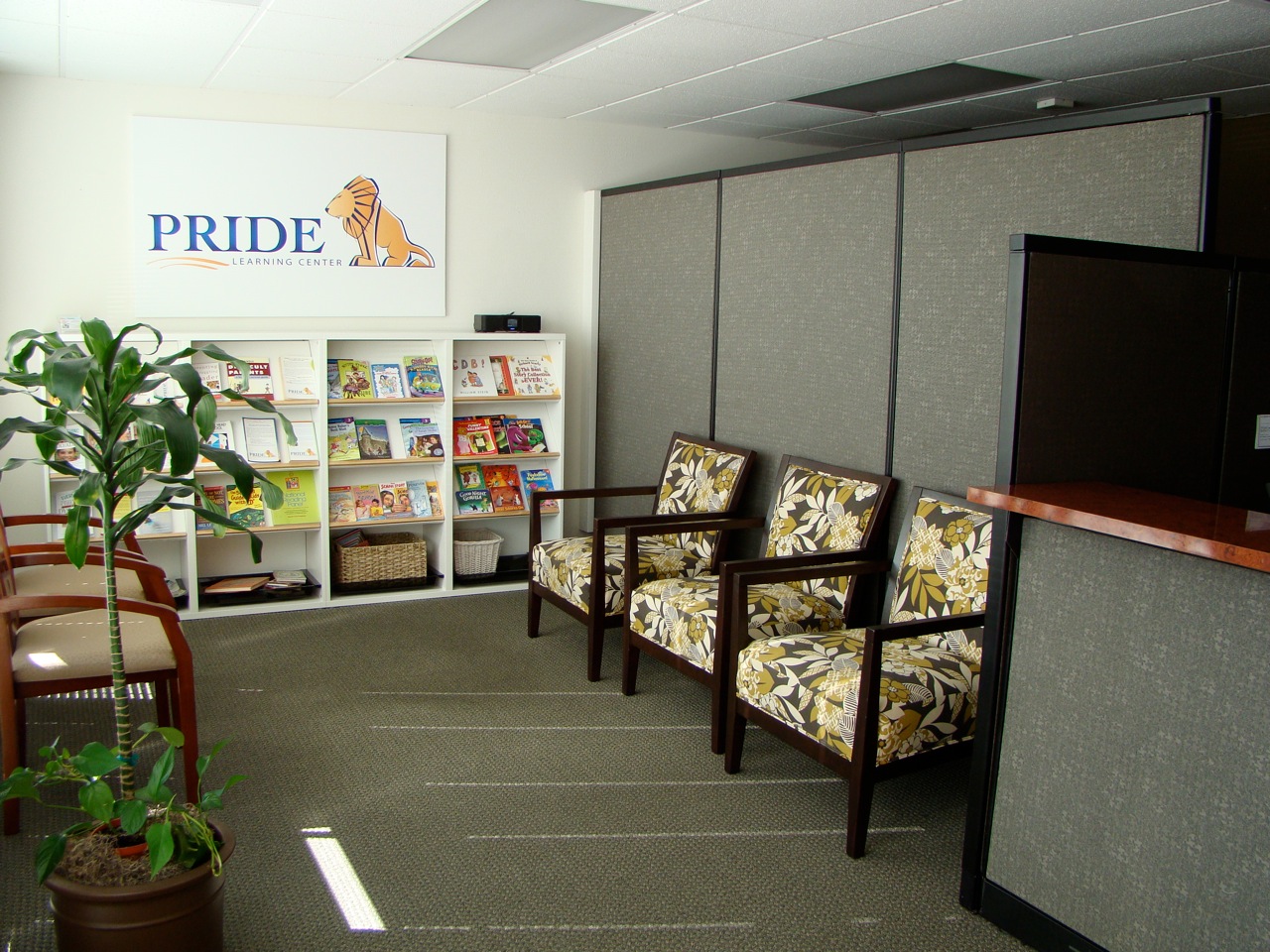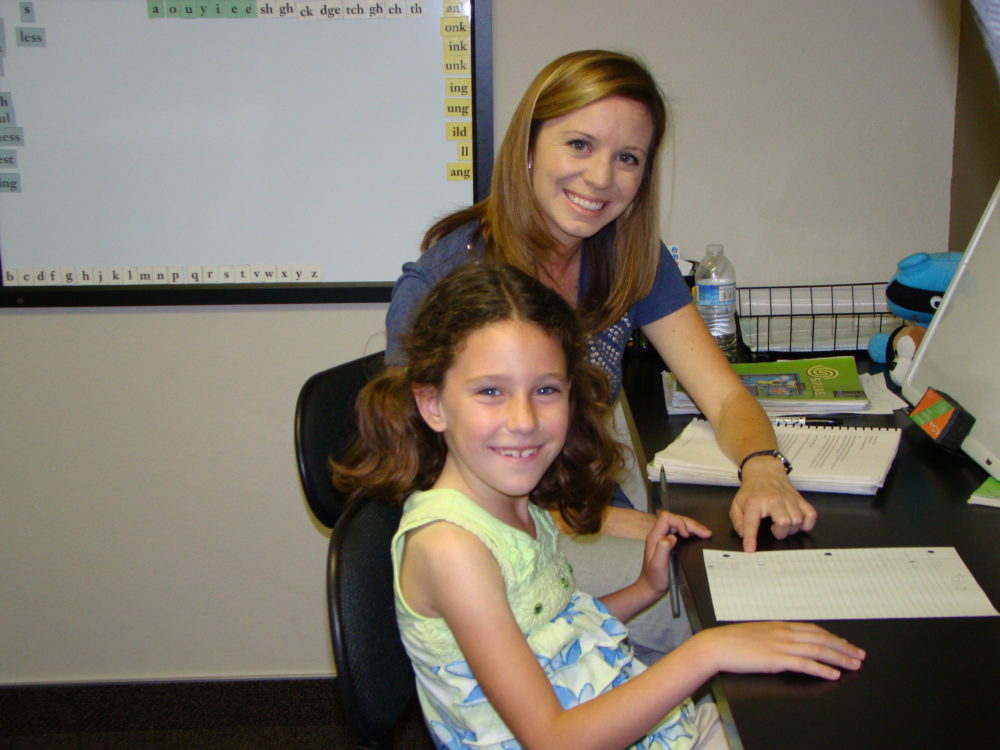
by PRIDE Reading Program Admin | Oct 6, 2013 | Dyslexia, Pride Mission Viejo
October is National Dyslexia Awareness Month and a local dyslexia tutoring center in Mission Viejo is offering free assessments, resources and special events throughout the month of October.
Owner of PRIDE Learning Center in Mission Viejo, Karina Richland, reports, “Dyslexia is a learning disability that affects about 20% of the nation. That means that one out of every five children in the Mission Viejo classroom struggles with dyslexia.” Richland, a dyslexia specialist and owner of a program that provides dyslexia tutoring in Mission Viejo says “most children with dyslexia go undiagnosed for years. With early detection, proper intervention, and certain accommodations in school, dyslexics can actually improve their reading skills dramatically.”
Warning Signs in School-Age Children
• Child uses memory skills in reading not decoding strategies
• Reads a word on one page but doesn’t recognize it on the next page
• Confuses look alike letters like b and d, b and p, n and u, or m and w
• Makes many reversals
• Substitutes a word while reading that means the same thing
• When reading leaves out or adds small words like “a, the, to, are, of”
• Reading fluency is poor
• Avoids reading as much as possible
• Misspells many words
• Writes illegibly
• Appears lazy, unmotivated, or frustrated
“The sooner a child with dyslexia is given proper instruction, particularly in the very early grades, the more likely it is that they will have fewer or milder difficulties later in life” states Richland.
The dyslexia tutoring program in Mission Viejo provides one-on-one reading help for students with learning differences, including dyslexia, auditory and or visual processing disorder and ADHD. PRIDE specializes in an Orton-Gillingham reading approach for students struggling with dyslexia.
Throughout the month of October, parents or grandparents can bring their child into the Mission Viejo Dyslexia Center for a free assessment that will measure their reading abilities. To schedule an appointment contact the Mission Viejo PRIDE Learning Center at 949-484-0230 or visit the website at www.pridelearningcenter.com

by PRIDE Reading Program Admin | Sep 23, 2013 | Dyslexia, Pride San Clemente
Students with dyslexia will be offered dyslexia help, tutoring, and resources at a new treatment center that has opened in San Clemente, California.
PRIDE Learning Center, an Orton-Gillingham reading clinic for students of all ages struggling with dyslexia and other reading disabilities, will offer specialized 1:1 remediation and support services. The dyslexia program will be the first comprehensive reading and writing center of its kind in San Clemente.
“Our programs have impacted the lives of so many individuals,” says Karina Richland, owner of PRIDE Learning Centers. “So many children come to us as non-readers struggling and frustrated with their dyslexia,” states Richland, “we are able to teach them how to read and help them appreciate and understand that their dyslexia is not necessarily a negative thing.”
The tutors at PRIDE Learning Center are credentialed teachers with Orton-Gillingham certification and strong backgrounds in Special Education. The learning center will also host parent workshops and professional speakers throughout the year.
“We are extremely excited to continue our mission of helping the families in our communities by providing these desperately needed services to the twenty percent of individuals affected by dyslexia,” commented Karina Richland. “Despite massive school reforms in special education, we still have large numbers of children that are not reading at grade level,” reports Richland. “Through our on-site programs as well as our professional workshops and contracts with various school districts, we know that we can make a difference for so many children who struggle with reading and writing.”
The San Clemente dyslexia center officially opened its doors September 17th. The center is located at 665 Camino De Los Mares 204B, in the medical buildings across from the Saddleback Memorial Hospital.
For more information, contact PRIDE Learning Center 866-774-3342 or go to www.pridelearningcenter.com

by PRIDE Reading Program Admin | Sep 20, 2012 | News & Events
MEET Lauren Katnik, Regional Director
PRIDE Learning Centers is growing rapidly and we are pleased to announce the addition of Lauren Katnik as our new Regional Director for the PRIDE Learning Centers in Los Angeles and Orange County, California.
Lauren Katnik is a graduate of Chapman University with a BA in Elementary Education and Teaching. Lauren has an immense amount of experience teaching literacy and working in elementary education for Irvine Unified School District and Oakland Unified School District. She currently holds a Multiple Subject Teaching Credential and is Orton-Gillingham Certified.
Lauren began her career with PRIDE working in the Mission Viejo Learning Center as the Center Director. As the Regional Director at PRIDE, Lauren manages the day-to-day operations of all four PRIDE Learning Centers. She works with PRIDE instructors to help students achieve their educational goals; conducts student progress meetings with parents and teachers; selects, trains, and manages staff members; and plans and participates in events that increase community awareness.
“I’m very excited to have Lauren join our team,” says Karina Richland, Founder of PRIDE Learning Centers. “Lauren has a proven track record of commended performance and an unwavering commitment to optimizing student and school success. I am just thrilled to add Lauren to our amazing team here at PRIDE.”
Lauren is ready and willing to answer any questions parents, teacher, professionals or community members have. Give her a call at 866-774-3342 ext. 1 or e-mail Lauren@pridelearningcenter.com. Or check out the website at www.pridelearningcenter.com

by PRIDE Reading Program Admin | Jun 13, 2012 | A PRIDE Post, ADHD
The production controls of attention regulate the quality and efficiency of our output – the creations, activities, and behaviors that we produce. They promote good judgment, effective problem solving, and sound decision making. Based on the work of learning specialist, Mel Levine, MD, I will describe four common forms of production control and provide strategies for strengthening these controls at home.
Previewing control enables us to look ahead and foresee an outcome, a likely result of something we’re about to do or attempt.
Options control entails thinking about choices rather than doing the first thing that comes to mind.
Pacing control regulates output speed, so actions are not too fast or too slow.
Quality control involves monitoring quality of output, so improvements can be made. In performing a task or trying to behave in a certain way, it is important to know how we are doing (self-monitoring).
Strategies for Parents:
*To help develop previewing skills, parents can encourage their kids to come up with a plan before writing a report, starting a project, or drawing a picture.
Children need to preview consciously, to visualize and describe what the outcome or result is likely or desired to be.
*It is often helpful to stress previewing in a child’s area of talent. For example, a child who is good at carpentry might be asked to draw a rough sketch of what the final product will look like prior to starting the actual work. Parents should spend time discussing this sketch and helping the child think through possible revisions in advance.
*Kids can be helped with previewing as part of their summer reading. Before reading a book, they should try to preview what its content is going to be based on the book’s title.
*To work on the aspects of options control, parents can ask questions like: “What are the different ways we might do this? What do you think is probably the best way? What would be the worst way to go about this?” This sort of reviewing of alternative strategies can occur before preparing a report or studying for a test. Such techniques can also help with overall problem-solving skills.
*The same kind of help can be related to behavioral and social planning (e.g., “What’s the best thing to do about that girl who called you a bad name in school today? What are some other things you could consider doing? What would work best? Which of these possibilities is a bad idea?”).
*To help children with improper pacing, parents should discourage frenetic work patterns by avoiding statements such as: “You can watch television when you finish your work.” Offers of this kind may inadvertently encourage children to work as quickly and carelessly as possible.
*It can help a child’s pacing to set aside a certain amount of time each evening (or each weekday evening) for cognitive work. The whole family should be engaged in such activities. There is then no incentive to finish quickly, since it will only mean having to find some other brainwork to do.
*Kids who need specific help with self-monitoring and proofreading (quality control) can benefit from looking for discrepancies or errors in their work or in the work of others. They should be required to proofread their own work but only after an interval of hours or days has passed since the work was completed. It is very tedious for anyone to correct something immediately after completing it.
________________________________________________________________________________________________
Dr. Susan E. Cozolino is a Licensed Clinical Psychologist who has a private practice in Beverly Hills. She specializes in the assessment of Attention-Deficit Hyperactivity Disorder and Learning Disabilities in students ages 6 & up. Dr. Cozolino helps students understand and address learning challenges by conducting thorough assessments, creating individualized learning plans, and recommending and advocating for educational services, modifications and accommodations. Dr. Cozolino is also an Adjunct Professor at Pepperdine University Graduate School of Education and Psychology.






